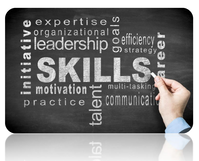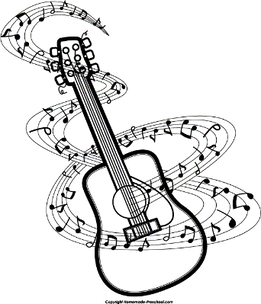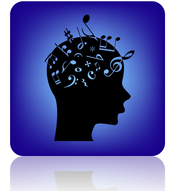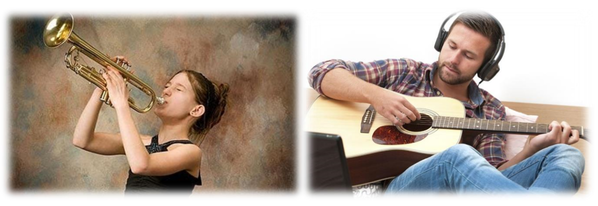Music
Music
Lots of scientific research over the last decade is proving that music education is a powerful tool for attaining children’s full intellectual, social and creative potential. It speeds the development of speech and reading skills; it train children to focus their attention for sustained periods; it helps children gain a sense of empathy for others. Musical activity involves nearly every region of the brain that we know about. Over the past 20 years, several large-scale studies of school achievement have found a strong correlation between learning to play an instrument and academic success.
Whether involved in recreational music making or training for a professional career, people who are engaged in music study are sharpening their cognitive skills and developing social connection. Parents can be more confident than ever that an investment in music education will deliver lifelong benefits for their child.
Whether involved in recreational music making or training for a professional career, people who are engaged in music study are sharpening their cognitive skills and developing social connection. Parents can be more confident than ever that an investment in music education will deliver lifelong benefits for their child.
What Music Will I Play?
As long as the standard of music meets the minimum requirements for the level studied, the choice will largely be up to the individual pupil, with guidance and suggestion provided by the teacher. We want you to enjoy the music you play as much as possible and you will always be encourage to try new things in order to continue to improve your technique, experience and general musicianship, experience and general musicianship.
As long as the standard of music meets the minimum requirements for the level studied, the choice will largely be up to the individual pupil, with guidance and suggestion provided by the teacher. We want you to enjoy the music you play as much as possible and you will always be encourage to try new things in order to continue to improve your technique, experience and general musicianship, experience and general musicianship.

What Skills Will I Develop?
Music education can be an amazing tool for helping young people develop: engaging them creatively; challenging them intellectually; building strong relationships with other students and teachers. We believe you can bring out a young person’s potential through music.
In the words of Albert Einstein: “The greatest scientists are artists as well". Music is kind of like part art, part science! Which means it will help you build your problem solving, research, planning, analytical and critical thinking skills, as well as develop your creativity.
Not to mention discipline, composure under pressure, time management, communication, team and individual working ability - all gained from practice and performing. You’ll also learn technical skills through using computers, equipment and software to create, record and/or edit music and sound. All of these make an attractive prospect for potential employers.
Music education can be an amazing tool for helping young people develop: engaging them creatively; challenging them intellectually; building strong relationships with other students and teachers. We believe you can bring out a young person’s potential through music.
In the words of Albert Einstein: “The greatest scientists are artists as well". Music is kind of like part art, part science! Which means it will help you build your problem solving, research, planning, analytical and critical thinking skills, as well as develop your creativity.
Not to mention discipline, composure under pressure, time management, communication, team and individual working ability - all gained from practice and performing. You’ll also learn technical skills through using computers, equipment and software to create, record and/or edit music and sound. All of these make an attractive prospect for potential employers.

What Careers Opportunities does Music open up?
Being musically trained opens up wide range of career opportunities both inside and outside the industry, including roles as a performer, teacher, administrator, songwriter, conductor, composer, recording engineer, manager, promoter, or music publisher.
There are also more jobs than ever in music business related areas, such as: careers in digital marketing, social media, PR, technology, label services, ticketing and merchandising. It is also common to find music graduates in consultancy, finance, banking, music therapy and legal jobs.
Rather than limiting your career prospects, music opens doors to a wide range of careers both within and outside the arts.
Being musically trained opens up wide range of career opportunities both inside and outside the industry, including roles as a performer, teacher, administrator, songwriter, conductor, composer, recording engineer, manager, promoter, or music publisher.
There are also more jobs than ever in music business related areas, such as: careers in digital marketing, social media, PR, technology, label services, ticketing and merchandising. It is also common to find music graduates in consultancy, finance, banking, music therapy and legal jobs.
Rather than limiting your career prospects, music opens doors to a wide range of careers both within and outside the arts.

National 5 Music
The purpose of the National 5 Music course is to provide candidates with a broad practical experience of performing, creating and understanding music. The course enables candidates to work independently or in collaboration with others, and can help them to plan and organise, to make decisions and to take responsibility for their own learning.
There are 3 main areas of study: Performing Skills, Understanding Music, and Composing Skills.
Performing Skills
You are required to play two instruments/and or voice. Both instruments/voice must be at a standard of at least Grade 3. You are required to prepare a programme of music lasting 8 minutes in which you play at least two pieces on each instrument. You will perform pieces to your teacher at various times throughout the year to ensure you are well prepared, and there will be various opportunities to play in front of peers/audiences.
You will play the full programme to a visiting examiner in Feb/March.
Understanding Music
You will learn about music from different genres including Scottish, World, Vocal, Classical and more. You will earn about distinctive features of the music and how to analyse them. You will complete short listening assessments throughout the session to ensure you have a strong understanding of each topic. You will sit a listening exam in April/May covering all topics taught throughout the year
Composing Skills
You are required to develop different musical ideas to create a piece of music. The piece will be recorded and a score or performance plan of the music will be made to accompany the recording. You will reflect on your creative choice and decisions in a short report. This is sent to the SQA for external marking.
The purpose of the National 5 Music course is to provide candidates with a broad practical experience of performing, creating and understanding music. The course enables candidates to work independently or in collaboration with others, and can help them to plan and organise, to make decisions and to take responsibility for their own learning.
There are 3 main areas of study: Performing Skills, Understanding Music, and Composing Skills.
Performing Skills
You are required to play two instruments/and or voice. Both instruments/voice must be at a standard of at least Grade 3. You are required to prepare a programme of music lasting 8 minutes in which you play at least two pieces on each instrument. You will perform pieces to your teacher at various times throughout the year to ensure you are well prepared, and there will be various opportunities to play in front of peers/audiences.
You will play the full programme to a visiting examiner in Feb/March.
Understanding Music
You will learn about music from different genres including Scottish, World, Vocal, Classical and more. You will earn about distinctive features of the music and how to analyse them. You will complete short listening assessments throughout the session to ensure you have a strong understanding of each topic. You will sit a listening exam in April/May covering all topics taught throughout the year
Composing Skills
You are required to develop different musical ideas to create a piece of music. The piece will be recorded and a score or performance plan of the music will be made to accompany the recording. You will reflect on your creative choice and decisions in a short report. This is sent to the SQA for external marking.

Higher Music
The Higher course further encourages learners to take responsibility for their own learning, and provides the opportunity for more in depth study of musical styles and a higher level of performance. There are 3 main areas of study: Performing Skills, Understanding Music, and Composing Skills.
Performing Skills
You are required to play two instruments/and or voice. Both instruments/voice must be at a standard of at least Grade 4. You are required to prepare a programme of music lasting 12 minutes in which you play at least two pieces on each instrument. You will perform pieces to your teacher at various times throughout the year to ensure you are well prepared, and there will be various opportunities to play in front of peers/audiences.
You will play the full programme to a visiting examiner in Feb/March.
Understanding Music
At this level, learners’ knowledge and understanding of music will include and build on the mandatory music concepts for the National 3, National 4 and National 5 level Courses, in addition to the learning new level specific Higher concepts.
As with National 5, you will complete short listening assessments throughout the session to ensure you have a strong understanding of each topic and will sit a final listening exam in April/May covering all topics taught throughout the year.
Composing Skills
The assignment draws on candidates’ skills, knowledge and understanding of music composition. The composition must show use of harmony, along with at least three of the following elements of music:
Candidates show their understanding of these elements of music through the creative and effective development of a range of musical ideas and compositional methods. They also self-reflect on their own original music and identify areas for improvement.
The Higher course further encourages learners to take responsibility for their own learning, and provides the opportunity for more in depth study of musical styles and a higher level of performance. There are 3 main areas of study: Performing Skills, Understanding Music, and Composing Skills.
Performing Skills
You are required to play two instruments/and or voice. Both instruments/voice must be at a standard of at least Grade 4. You are required to prepare a programme of music lasting 12 minutes in which you play at least two pieces on each instrument. You will perform pieces to your teacher at various times throughout the year to ensure you are well prepared, and there will be various opportunities to play in front of peers/audiences.
You will play the full programme to a visiting examiner in Feb/March.
Understanding Music
At this level, learners’ knowledge and understanding of music will include and build on the mandatory music concepts for the National 3, National 4 and National 5 level Courses, in addition to the learning new level specific Higher concepts.
As with National 5, you will complete short listening assessments throughout the session to ensure you have a strong understanding of each topic and will sit a final listening exam in April/May covering all topics taught throughout the year.
Composing Skills
The assignment draws on candidates’ skills, knowledge and understanding of music composition. The composition must show use of harmony, along with at least three of the following elements of music:
- melody
- rhythm
- timbre
- structure
Candidates show their understanding of these elements of music through the creative and effective development of a range of musical ideas and compositional methods. They also self-reflect on their own original music and identify areas for improvement.

Advanced Higher Music
The course has an integrated approach to learning and combines practical learning and understanding of music. Candidates draw upon their understanding of music styles and concepts when performing and creating music.
Candidates experiment with and use music concepts in creative ways, within a range of compositional methods, as they compose or arrange music and reflect on their creative choices. Through listening, they develop knowledge and understanding of a variety of music styles and concepts, and signs and symbols used in music notation.
Candidates develop their performing skills on one instrument or voice through regular practice and reflection.
Candidates must also:
Skills, knowledge and understanding for the course assessment
The following provides details of skills, knowledge and understanding sampled in the course assessment.
Performance
Candidates demonstrate their performing skills by presenting a prepared programme of music. The selected programme of music must allow the candidate to demonstrate a sufficient level of technical and musical skills at the appropriate level (Grade 5 or above).
Question paper
The question paper tests skills in aural discrimination and perception, knowledge and understanding of music concepts, music literacy and analysis of music. These are developed throughout the course.
Assignment
The assignment draws on candidates’ skills, knowledge and understanding of music composition. The composition or arrangement must show use of all of the following elements of music:
Candidates show their understanding of these elements of music through the creative and effective development of a range of musical ideas and compositional methods. They reflect on their own original music and identify areas for improvement. They also analyse a chosen piece of music.
The course has an integrated approach to learning and combines practical learning and understanding of music. Candidates draw upon their understanding of music styles and concepts when performing and creating music.
Candidates experiment with and use music concepts in creative ways, within a range of compositional methods, as they compose or arrange music and reflect on their creative choices. Through listening, they develop knowledge and understanding of a variety of music styles and concepts, and signs and symbols used in music notation.
Candidates develop their performing skills on one instrument or voice through regular practice and reflection.
Candidates must also:
- perform on a second contrasting instrument
- compose a portfolio of music
Skills, knowledge and understanding for the course assessment
The following provides details of skills, knowledge and understanding sampled in the course assessment.
Performance
Candidates demonstrate their performing skills by presenting a prepared programme of music. The selected programme of music must allow the candidate to demonstrate a sufficient level of technical and musical skills at the appropriate level (Grade 5 or above).
Question paper
The question paper tests skills in aural discrimination and perception, knowledge and understanding of music concepts, music literacy and analysis of music. These are developed throughout the course.
Assignment
The assignment draws on candidates’ skills, knowledge and understanding of music composition. The composition or arrangement must show use of all of the following elements of music:
- melody
- harmony
- rhythm
- structure
- timbre
Candidates show their understanding of these elements of music through the creative and effective development of a range of musical ideas and compositional methods. They reflect on their own original music and identify areas for improvement. They also analyse a chosen piece of music.













